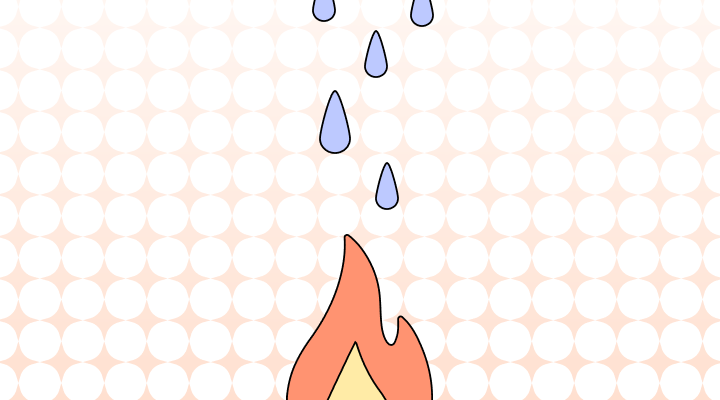The verb "douse" means to drench or pour liquid, typically water, over something. It can also mean to extinguish a fire with a liquid, usually water.
During a hot summer day, children may decide to douse themselves with cold water from the hose to cool down and refresh.
Although highly associated and used with water, "douse" can be used with other liquids. For example, you could douse some documents in oil to burn them right after. "Douse" simply means to thoroughly wet or soak something by immersing it in a liquid or pouring a liquid over it. The word can, therefore, be easily applied to cooking. You can douse vegetables in cooking oil before putting them in a hot frying pan.
Example sentences
- The firefighters worked tirelessly to douse the raging flames that had engulfed the building.
- She had to douse her clothes with water to extinguish the small fire that had started on her shirt.
- The chef needed to douse the vegetables in olive oil before roasting them in the oven.
- The sudden rainstorm caught us off guard, and we were completely doused by the time we reached shelter.
- The camper quickly learned how to douse the campfire with water to ensure it was completely out before leaving.
- After a long hike, we decided to douse our tired feet in the cool stream to relieve the soreness.
- The mischievous kids loved to sneak up on each other and douse each other with water balloons.
- The gardeners had to douse the plants with insecticide to protect them from the invading pests.
- The chef used a splash of lemon juice to douse the dish with a burst of tangy flavor.
- He couldn't believe his luck when a passing car doused him with mud from a puddle on the road.
Want to sound like a native speaker?
Engram’s AI-powered grammar checker makes your English sound like a native speaker’s, suggesting natural English expressions on top of fixing grammar, spelling, punctuation, word order, and vocabulary.

Reference:
















